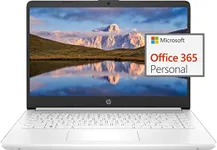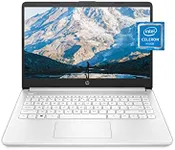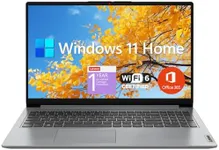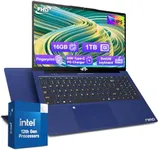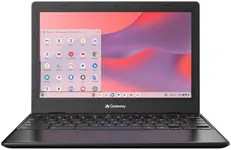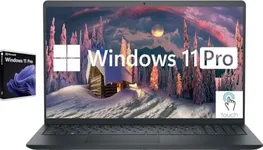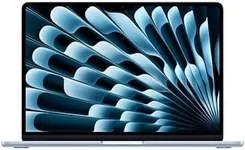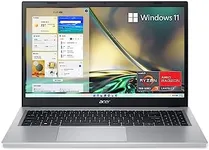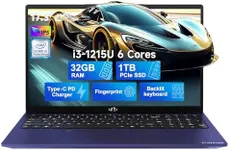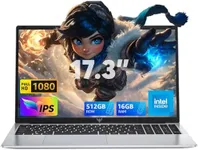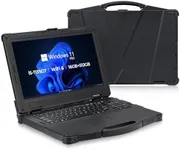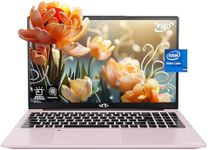Buying Guide for the Best Student Laptops
Choosing the right laptop as a student can significantly impact your academic performance and overall experience. It's important to consider what you'll be using the laptop for, such as taking notes, writing papers, conducting research, or running specific software for your courses. By understanding the key specifications and how they align with your needs, you can make an informed decision and find the best fit for you.Processor (CPU)The processor, or CPU, is the brain of your laptop. It determines how fast and efficiently your laptop can run applications and perform tasks. For basic tasks like browsing the web, taking notes, and streaming videos, an entry-level processor like an Intel Core i3 or AMD Ryzen 3 will suffice. For more demanding tasks such as programming, video editing, or running complex software, a mid-range processor like an Intel Core i5 or AMD Ryzen 5 is recommended. High-end processors like Intel Core i7 or AMD Ryzen 7 are suitable for very intensive tasks but may be overkill for most students.
RAMRAM (Random Access Memory) is crucial for multitasking and running multiple applications smoothly. For general use, 8GB of RAM is typically sufficient, allowing you to run several applications at once without slowing down. If you plan to use more demanding software or keep many tabs open in your browser, consider 16GB of RAM. More than 16GB is usually unnecessary for most students unless you are working with very large datasets or high-end software.
StorageStorage determines how much data you can keep on your laptop, including documents, applications, and media files. Solid State Drives (SSDs) are faster and more reliable than traditional Hard Disk Drives (HDDs). A 256GB SSD is a good starting point for most students, providing a balance between speed and capacity. If you need more space for large files or software, consider a 512GB SSD or even a combination of an SSD for speed and an HDD for additional storage. Cloud storage can also supplement your needs.
Battery LifeBattery life is essential for students who need to use their laptops throughout the day without access to a power outlet. Look for a laptop that offers at least 8 hours of battery life to ensure it lasts through classes, study sessions, and other activities. If you have long days on campus or travel frequently, a laptop with 10-12 hours of battery life or more will be beneficial.
DisplayThe display quality affects your viewing experience, especially if you spend long hours on your laptop. A Full HD (1920x1080) resolution is generally sufficient for clear and sharp visuals. If you work with graphics or media, a higher resolution display (such as 4K) might be worth considering. Additionally, screen size matters; a 13-14 inch display offers a good balance between portability and usability, while a 15-inch or larger screen provides more workspace but can be bulkier.
Weight and PortabilityAs a student, you'll likely be carrying your laptop around campus, so weight and portability are important factors. Laptops weighing around 3 pounds (1.4 kg) or less are considered lightweight and easy to carry. If you need a larger screen or more powerful components, be prepared for a slightly heavier device. Consider how often you'll be transporting your laptop and choose a weight that won't be a burden.
Operating SystemThe operating system (OS) is the software that manages your laptop's hardware and software resources. The most common options are Windows, macOS, and Chrome OS. Windows is versatile and compatible with a wide range of software, making it a good choice for most students. macOS, found on Apple laptops, is known for its smooth performance and integration with other Apple devices, ideal for students in creative fields. Chrome OS is lightweight and secure, suitable for basic tasks and web-based applications, but may not support all software required for certain courses.
ConnectivityConnectivity options, such as USB ports, HDMI, and Wi-Fi, are important for connecting peripherals and accessing the internet. Ensure the laptop has enough USB ports for your needs, including USB-C if you use modern accessories. An HDMI port is useful for connecting to external displays or projectors. Additionally, look for laptops with the latest Wi-Fi standards (Wi-Fi 5 or Wi-Fi 6) for faster and more reliable internet connections.
